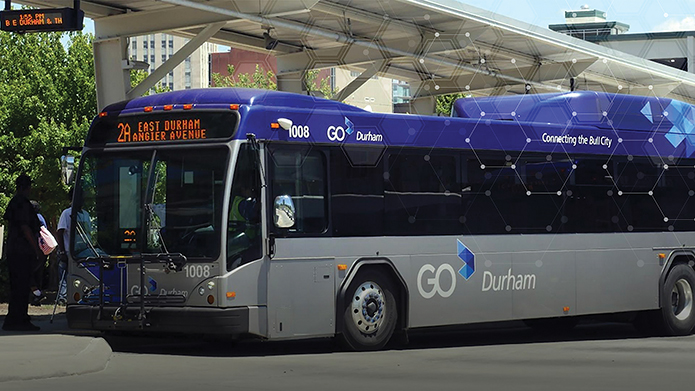
By H. Kevin Mest
Cloud computing has been around for two decades. Yet, despite the data pointing to the business efficiencies, cost-benefits, and competitive advantages it holds, some are still resistant to embrace it. For example, suppose you are still evaluating whether or not to adopt the cloud for your bus operations. In that case, you are already behind 90 percent of all companies, including busing, according to a study by 451 research. But do not fret. Chances are you already have some cloud-enabled technologies onboard, and the rest can be a seamless turnkey solution that will help you drive business efficiencies.
Your buses are likely equipped with telematics, which is much more than GPS. With telematics, you can know your fleet inside and out to make informed, strategic decisions. You can monitor and manage your buses, spot trends, dig into details and uncover hidden costs. However, this data must reside somewhere. Enter the cloud.
With your data in the cloud, you can access all your fleet information without managing a costly server. With numerous buses generating vast volumes of structured and unstructured data on an everyday basis, collectively known as big data, traditional servers can’t process it all, whereas the cloud can. Deriving valuable insights from big data requires cost-effective ways of information processing. Your on-premises storage systems likely can’t keep up with high-volume data generation in the long run. You can gain valuable insights from your data and make data-driven decisions from routing, ridership, inspection data and more by moving to the cloud. Traditional servers can also overheat, take you offline when systems go down and require a disaster recovery option for your data. But the good news is that transitioning to the cloud takes minimal effort from your organization.
Once you have identified a cloud host (think Amazon, Google, Microsoft, and others), that host will migrate your server to theirs. They are the experts and monitor all technical and procedural requirements to ensure a successful transfer. In this process, your data is stored and backed up so that you don’t have to worry about a disaster recovery option when a storm or power outage hits.
Cloud services can also scale up or down very easily based on user requirements. For example, with ridership being a guessing game during the COVID-19 pandemic, leading bus operations on the cloud were able to adapt to new norms much quicker and more efficiently than their non-cloud competitors.
And while, technically, your data is stored elsewhere, by leveraging the cloud, you have access to your data 24/7/365 from anywhere you have an internet connection. With many bus operations consisting of a small team, having around-the-clock access is invaluable, particularly when an issue comes up that requires a timely response. From owner to maintenance to the drivers and riders, being able to access your systems to know exactly where a bus is, how it is operating, and all other facets of your business at any time can ease the worries of everyone involved.
In addition to streamlining some of your bus technologies with cloud enablement for peace of mind, it can also lead to cost savings. By keeping your data, particularly that from your telematics provider, in the cloud, you can eliminate the need for your company’s additional infrastructure and IT resources. Cloud hosts plus a leading telematics provider with cloud-based systems provide the necessary hardware and personnel, meaning you save on expenses. But you can also save on time because you have freed up your IT staff to perform other operational tasks affecting the efficiency and productivity of your fleet. For example, your cloud host will handle the server management duties, your cloud leveraging telematics provider can manage your bus data, all of which was previously conducted by you and your team.
When bus operations combine cloud technology with their telematics-based services, they can share information efficiently, prevent many human errors, and speed up the decision-making process. This helps them boost productivity by focusing on core tasks that matter. Plus, you can maximize your operation’s uptime. Your cloud host will monitor your servers to ensure reliable, 24/7/365 performance and your telematics provider leveraging the cloud will do the same for the bus data. Any cross-over of data management will act as an additional failsafe of data security. Maximized uptime means less downtime and the potential for a more efficient, productive, and streamlined fleet operation for you.
H. Kevin Mest is senior vice president of passenger services at Zonar. Visit www.zonarsystems.com for more information.
